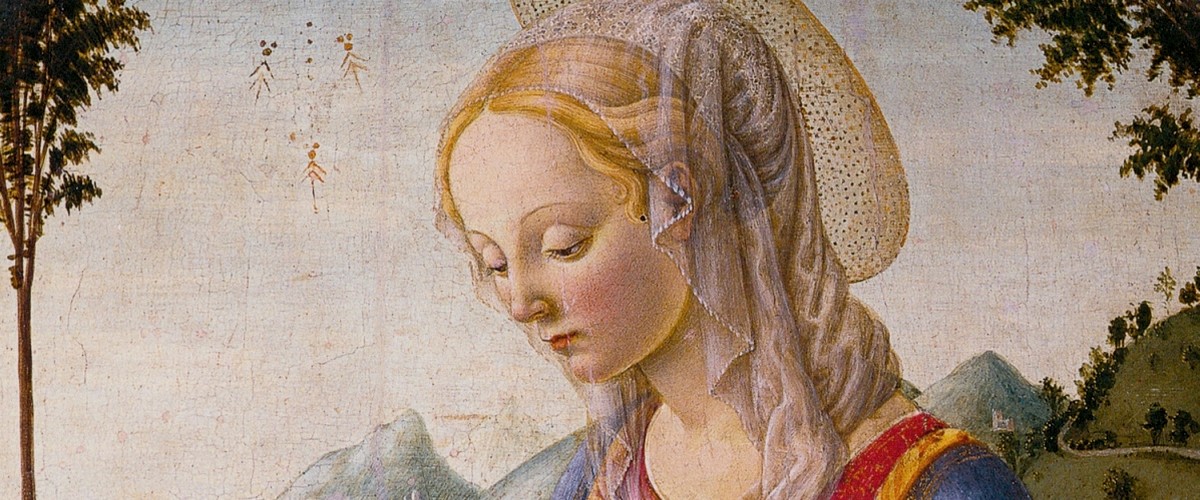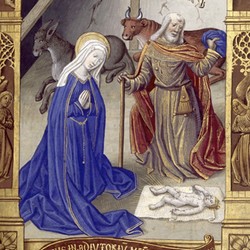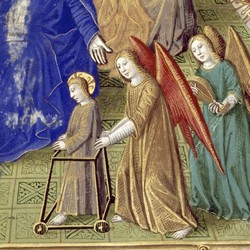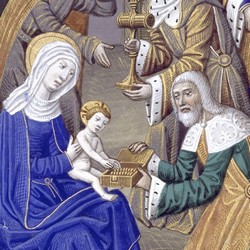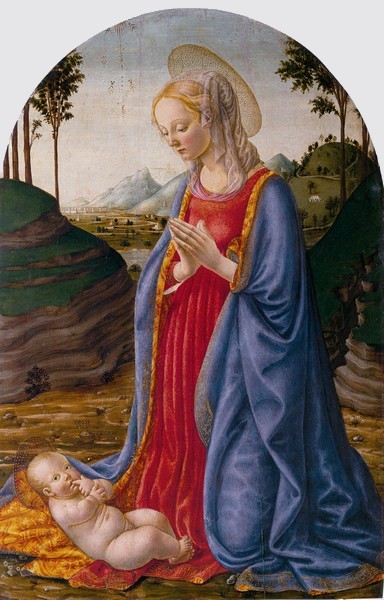
The first Christmas song we heard on this blog, in December 2012, was the superb Geistliches Wiegenlied, by Johannes Brahms, a song that the composer dedicated in 1863 to his godson, the son of violinist Joseph Joachim and contralto Amalie Schneeweiß. He chose the text from the Geistliche Lieder [Sacred Songs] of the Spanisches Liederbuch [Spanish Songbook] by Emmanuel Geibel and Paul Heyse; it was the German version of a poem by Lope de Vega. In March 1941 a song by Catalan composer Eduard Toldrà was premiered in the Palau de la Música Catalana in Barcelona that set into music the same verses, but now in the original version, Cantarcillo (published shortly after in the collection Seis canciones [Six Songs]).
The poem is included in one of the pastoral novels by Lope de Vega, Pastores de Belén. Prosas y versos divinos [Shepherds of Bethlehem. Divine Prose and Verse], a work intended for the youngest readers; few children could read it nowadays! (and, in fact, few children were able to read it in the 17th century, when education was available only to a few families). The writer dedicated the work to his son Carlos Félix, and the dedication read: "These prose and verse to the Holy Child are addressed to your tender years [...]. Read this childish pages". Unfortunately, the child died in 1612 at seven, a few months after the novel was published.
The characters of Pastores de Belén are, as the title suggests, shepherds who sing the birth of Jesus (with cultural baggage that few people have in the 21st century). We find the verses of the song by Toldrà (and Brahms) at the end of the fourth book, the penultimate. Shepherd Frondoso asks shepherd Aminadab if the Virgin Mary was actually fourteen years old, as he has just sung, and if it is appropriate to refer to her as niña [child] when she is a mother. Aminadab answers that niña is a tender and yet deferent way of referring to her, both for her youth and beauty and for her purity. Shepherd Elifila, who agrees that niña is a delicate way of calling her, sings a song, La Niña a quien dijo el Ángel [The Childs who was told by the Angel] which tells how the mother tries to comfort her crying baby. When the child finally falls asleep, the mother asks the angels to keep quiet, so as they don't wake him up. The first part of the song is in the third person, and the second one, when the mother addresses directly to the angels, in the first person. This last part of the poem is what we know as Cantarcillo; the tone of the verses changes and takes the form of a popular song.
Cantarcillo by Toldrà is our first Christmas song this year. It's a tender, delicate song, that we're listening performed by tenor Pablo García-López and pianist Aurelio Viribay, as included in their recent recording "Rutas". I hope you enjoy the music by Eduard Toldrà and the interpretation, and I wish you a Christmas full of hope.
Pues andáis en las palmas,
ángeles santos,
que se duerme mi niño,
tened los ramos.
Palmas de Belén
que mueven airados
los furiosos vientos
que suenan tanto:
no le hagáis ruido,
corred más paso,
que se duerme mi niño,
tened los ramos.
El niño divino,
que está cansado
de llorar en la tierra
por su descanso,
sosegar quiere un poco
del tierno llanto.
Que se duerme mi niño,
tened los ramos.
Rigurosos yelos
le están cercando;
ya veis que no tengo
con qué guardarlo.
Ángeles divinos
que váis volando,
que se duerme mi niño,
tened los ramos.


